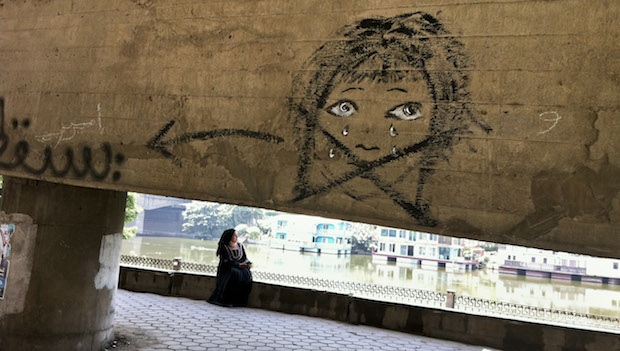We were expecting women to have a greater role with the inauguration of each president or chief of government affairs in the Arab Spring countries, whether in Egypt, Libya, Tunisia or elsewhere. Unfortunately, this has failed to happen since the 2011 revolutions. What is happening now is no more than a smokescreen. At many points we witnessed women being appointed to many positions, not for their capabilities, but just for show or decoration in order to be able to say that women have a presence.
On the other hand, women do not defend their right to political participation. The situation is being dealt with only in terms of women’s presence and not in terms of women being capable of expressing themselves—not only regarding women’s interests and rights, but also regarding the rights and interests of society as a whole. For this reason, what is happening today is no more than superficial ornament unfairly encouraged by the government.
In Egypt, for example, the status of women’s actual participation is disgraceful. This has been the case in all councils formed in the past three years, including Parliament, the Shura Council, the Constituent Assembly of 2012, the Committee of 50 that drafted the new constitution and even in government ministries.
It is well known that there are no indicators or studies that catalogue the magnitude of women’s participation in the Arab Spring, but it is true that the women’s rights movement and civil movements in general participated in a big way. These movements defended various social classes in the fight for social justice. Women had a role, but we cannot say that women’s issues in and of themselves led to the Arab uprisings, or that defending women’s interests was the only role women played.
The reason is that there were many other big issues involved: issues such as democracy, preventing violence and eliminating corruption, which all affect men and women alike. Women were an integral part of the Arab Spring, and women and men both played roles in all kinds of groups; women were and still are found in trade unions, human rights organizations and youth movements.
Today, when we look at women’s representation, it is, unfortunately, still inadequate and continues to suffer from the stain of patriarchy. There exists among liberals those who say they are in favor of women’s presence and representation in government. The Committee of 50 was of the same opinion as the Constituent Assembly of 2012, in that neither wished to include an article in the constitution ensuring balanced and proportional representation for women.
Unfortunately, the culture of patriarchy is not limited to Islamist currents—as I said, it is present in some liberal circles as well. If women are represented, it will mostly be based on connections and not capability. This applies to Egypt, Tunisia, Libya and Yemen.
It must be said that, prior to January 25, 2011, the level of awareness of women’s issues was not where it is now, nor was there the level of politicization across society that we are witnessing today. There were many Egyptian feminists who played significant roles before the Arab Spring uprisings, but public opinion did not acknowledge them until after the revolutions began.
The role of women in these uprisings was very great—perhaps greater than the role of men. However, this fact has not translated into concrete change. On the contrary, women’s rights have retreated.
The counterpoint to this article can be read here.

In the US the same thing happened during the Black Panther and Black American (starting with Rosa Parks refusing to give up her seat on a bus) movement about 50 years ago. It was felt then (I believe) that African Americans must gain equal power but the groups decided that women’s rights could wait. At that time, women didn’t own credit cards, most bank accounts were in men/husband’s names, the work/government forces were dominated by men, women weren’t given important jobs based on the debate that they must be qualified for the jobs, etc, etc. It took a bit of time, but now, women’s roles in (practically ?) all areas of life is very active. Hopefully the same thing will happen in the Middle Eastern countries that you mentioned.